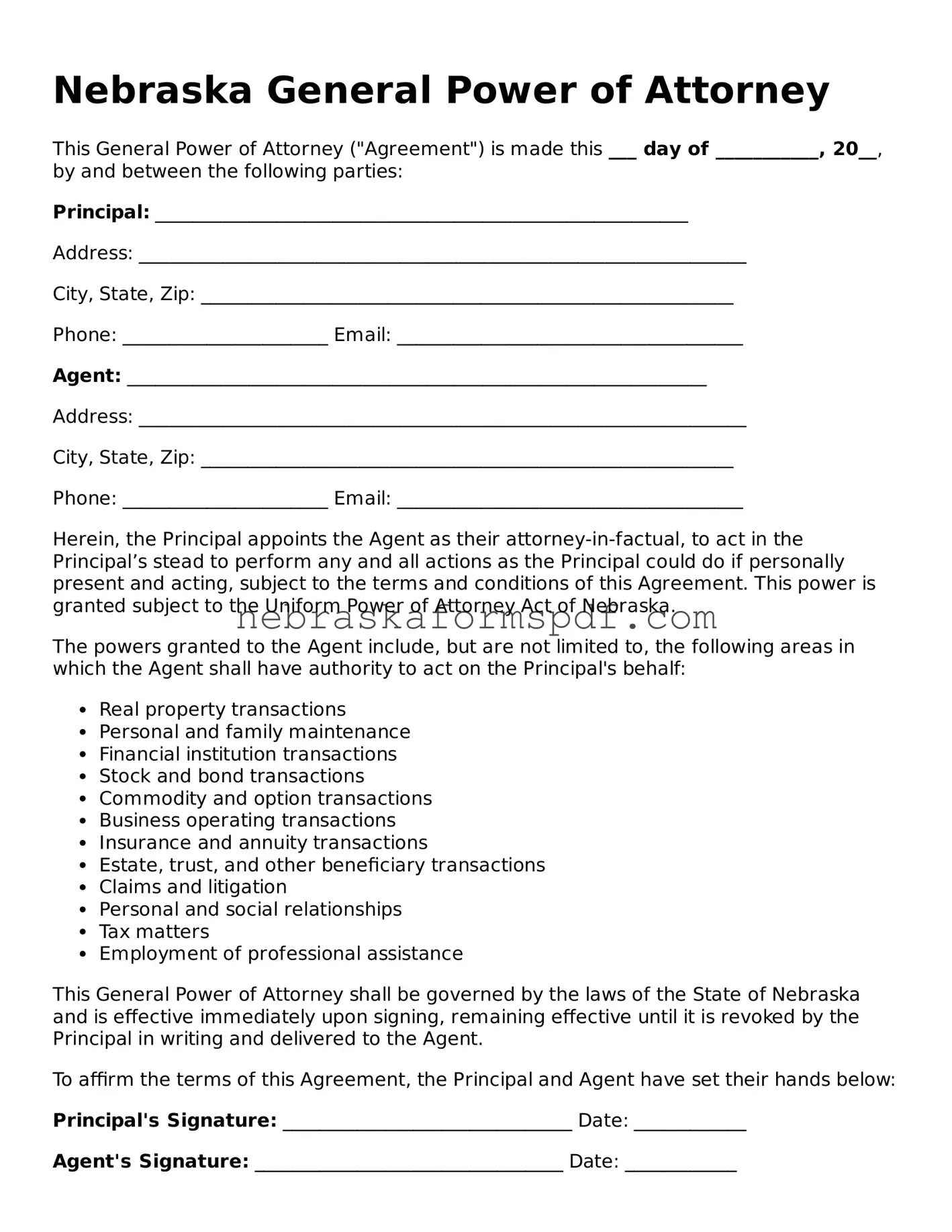Fillable Nebraska General Power of Attorney Template
The Nebraska General Power of Attorney form is a legal document that enables an individual to appoint another person to manage their financial affairs. This authority can cover a broad range of activities, from handling bank transactions to managing real estate. It is a powerful tool for ensuring someone's financial matters are taken care of, should they become unable to do so themselves.
Open Editor Here

Fillable Nebraska General Power of Attorney Template
Open Editor Here

Open Editor Here
or
Click for PDF Form
Don’t exit with an incomplete form
Finish General Power of Attorney online using a quick, guided process.